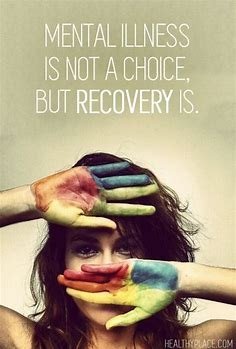Mental Health Resource Guide for Individuals with Learning Disabilities
This three-part mental health resource guide aims to provide comprehensive support and information for individuals with learning disabilities who are facing mental health challenges. It covers understanding, accessing services, and self-care strategies to help them lead fulfilling lives.

Part 1: Understanding Mental Health and Learning Disabilities
Introduction to Mental Health and Learning Disabilities:
- Definition of learning disabilities and common types.
- Explanation of the intersection between learning disabilities and mental health.
Recognizing Signs and Symptoms:
- Identifying signs of common mental health issues, such as anxiety, depression, and ADHD, in individuals with learning disabilities.
- Understanding the importance of early intervention.
The Impact of Stigma:
- Addressing the stigma associated with both learning disabilities and mental health conditions.
- Strategies to combat stigma and promote self-acceptance.
Educational Accommodations:
- Overview of educational accommodations available to students with learning disabilities.
- How to advocate for appropriate accommodations in educational settings.

Part 2: Accessing Mental Health Services
Seeking Professional Help:
- Guidance on how to find and connect with mental health professionals who understand learning disabilities.
- Tips for preparing for an initial assessment.
Supportive Therapies:
- Overview of different therapeutic approaches, such as cognitive-behavioral therapy (CBT), that can benefit individuals with learning disabilities and mental health challenges.
- Real-life success stories from individuals who have benefited from therapy.
Support Groups and Peer Networks:
- Information on local and online support groups for individuals with learning disabilities and mental health concerns.
- Advice on the benefits of connecting with peers who share similar experiences.
Crisis Intervention and Helplines:
- A list of crisis helplines and resources for immediate assistance in times of mental health crisis.
- Information on how to access emergency mental health services.

Part 3: Self-Care and Coping Strategies
Self-Care for Emotional Well-being:
- Tips for managing stress, anxiety, and depression.
- Ideas for incorporating self-care practices into daily life.
Building Resilience:
- Strategies to enhance resilience and adaptability in the face of learning disabilities and mental health challenges.
- Stories of individuals who have overcome adversity and thrived.
Advocacy and Rights:
- Information on legal rights and protections for individuals with learning disabilities and mental health conditions.
- Tips for self-advocacy and seeking necessary accommodations.
Future Planning:
- Guidance on setting and achieving personal and academic or career goals.
- Resources for transitioning from educational settings to the workforce.
We are a non-profit organization creating an inclusive community through meaningful work and relationships, education, quality housing, and a sense of belonging. We collaborate with people and organizations in the broader community to educate and eliminate the stigma around mental illness while championing mental wellness.
COMPASS is a province-wide service to support evidence based care to all BC children and youth living with mental health and substance use concerns. The program connects community care providers across BC to the information, advice, and resources they need to provide timely mental health and substance use care to children and youth ( up to 25 years) close to home.
If you are worried, confused or just need someone to talk to, there is help available:
- Kid’s Help Phone: Call 1-800-668-6868. For kids and teens (ages 20 and under), professional counsellors are available to help, 24 hours a day. It’s free, confidential and anonymous.
- Mental Health Support Line: Call 310-6789 (do not add 604, 778 or 250 before the number). This number will connect you to your local BC crisis line without a wait or busy signal, 24 hours a day. Crisis line workers are trained to help provide emotional support as well as mental health information and resources.



